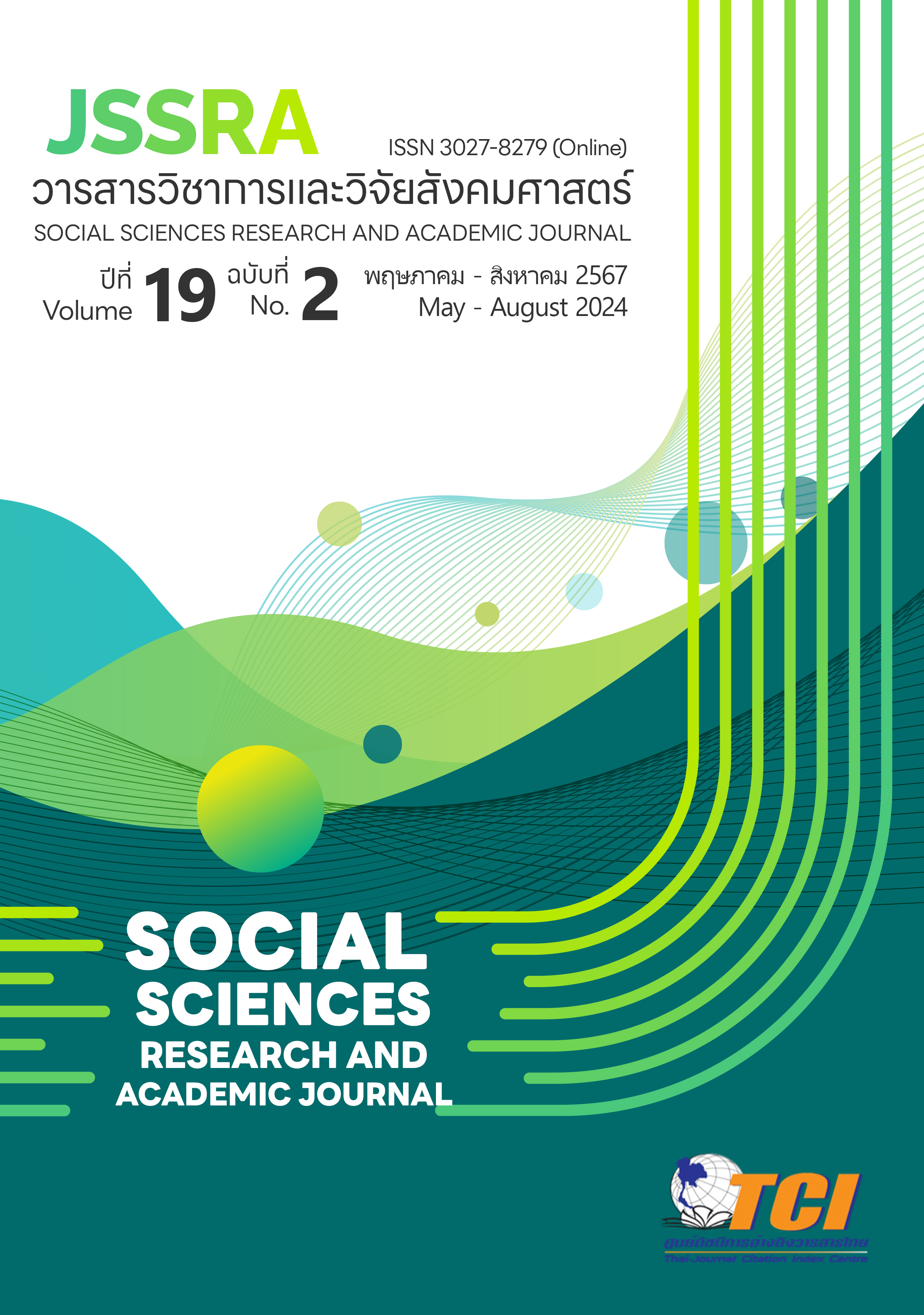The Development of Executive Functions for Autistic Children: Impairment, Principles, and Development
Main Article Content
Abstract
This academic article aimed to present the development of executive functions for Autistic children which caused by an abnormality of the brain. The abnormality is characterized by impairment in using language in communication, social interaction and emotional developmental delay together with narrow or repetitive interests. There are 2 important skill groups and their 3 sub-skills. The first one is basic function; working memory, inhibitory control, and shift/cognitive flexibility another skill group is self-control functions; focus attention, emotional control, and self-monitoring. All executive functions rely on supportive principles, for example, opportunities, suitable surroundings, and positive disciplines through different activities. Parents and teachers should motivate autistic children in all dimensions to progress their 6 basic executive functions. There are 6 developmental approaches; 1) Dividing their working steps into smaller steps to enhance their memory skill, 2) Creating different situations for them to confront to practice their inhibitory control, 3) Practicing them to set backup plans to expand their cognitive flexibility, 4) Using daily activity schedules or work box systems to practice their initiative and action skills, 5) Instructing them to practice planning, organizing, and predicting the outcomes by setting methods and 6) Practicing their self-monitoring to drill news reporting that links to their real-life or to play games with rules. All activities should include focusing attention and emotional control so that autistic children will possess the functions required in their daily life with higher capabilities to learn academic lessons at school.
Article Details
References
American Psychiatric Association. (2013). Desk Reference to the Diagnostic Criteria from DSM-5. Washington, D.C.: American Psychiatric Publishing.
Baler, R. and Volkow, N. (2006). Drug Addiction: The Neurobiology of Disrupted Self-Control. Trends in Molecular Medicine, 12(12), 559-566.
Blair, C. and Razza, R. P. (2007). Relating Effortful Control, Executive Function, And False Belief Understanding to Emerging Math and Literacy Ability in Kindergarten. Child development, 78(2), 647-663.
Chutabhakdikul, N. (2014). The Brain of Special Children: New Ideas for Stimulating the Brain's Natural Recovery Mechanism, Retrieved September 10, 2022, from https://drive.google.com/file/d/1B8vHo2Auw2H6Ja4nhjQWfGjtSx1x3gDS/view?usp=sharing
Elsabbagh, M. and Johnson, M.H. (2010). Getting Answers from Babies About Autism. Trends in Cognitive Science, 14(1), 81-87.
Johnson. R. and Alleyne. O. (2019). Executive Functioning in Children with Autism. Retrieved January 29, 2023, from https://livingautism.com/executive-functioning-in-children-with-autism/
Kenny L., Cribb S. and Pellicano E. (2018). Childhood Theory of Mind Planning and Cognitive Flexibility Predicts Later Behavioral Outcomes in Autistic Adolescents. Journal of Abnormal Child Psychology. 2019, 1089-1099.
Kosuwan, K. and Viriyangkura, Y. (2019). Autism Is Not Difficult to Teach If You Understand. Chiang Mai: Leo media Design. (In Thai).
Meltzer, L. (2007). Executive Function in Education: From Theory to Practice. London: The Guilford Press.
Ministry of Education. (2009). Announcement of the Ministry of Education Regarding the Classification and Criteria for Persons with Disabilities in Education, 2009. Bangkok: Ministry of Education. (In Thai).
Ministry of Education. (2022). Action Plan for Fiscal Year 2022, Office of Special Education Administration. Bangkok: Ministry of Education Publishing. 47. (In Thai).
Ministry of Public Health. (2016). Results of a Survey of the Situation of Intelligence and Intelligence Emotional Thai Children Grade 1 Level, Year 2016, Retrieved September 10, 2022 from https://hpc9.anamai.moph.go.th/webupload/migrated/files/hpc9/n984_c4c8bc6640d6d46c12749064c76fab6a_article_20170110124250.pdf
Naglieri, J. A. and Goldstein, S. (2014). Assessment of Executive Function Using Rating Scales: Psychometric Considerations. In Goldstein, S., & Naglieri, J. A. (Eds.), Handbook of Executive Functioning. (pp. 121-122). New York: Springer Science+Business Media. (In Thai).
Nopmaneejumruslers, K. and Kaewkan, I. (2017). A New Paradigm for Caring for Children with Autism, for Pediatricians. Journal of Pediatrics, 56(1), 6-15. (In Thai).
Office of the Narcotics Control Board. (2015). EF, Life Immunity and Drug Prevention. in Handbook for Kindergarten Teachers. Bangkok: Pimdee Company Limited. (In Thai).
Phokham, N. (2020). EF Brain Skills for Early Childhood. Executive Functions for Early Childhood. Mahamakut Rajavidyalaya University Journal Roi Et Campus, 9(2), 707-721. (In Thai).
Preda Ulita, A. (2016). Improving Children’s Executive Functions by Learning to Play A Musical Instrument. Bulletin of the Transilvania University of Brasov Series VIII. 9(58), No.2, 85-90. (In Thai).
Rangsiyanon. R, Intamra. P, Pianpiamsin. S, Wannasuth. S. and Tinnarat. S. (2019). Development of Creation of Executive Function-EF Model for Preschool Children Through the Participation Process of The School under Suan Dusit University's Network. Bangkok: Faculty of Education Suan Dusit University. 12 (In Thai).
Saengsawang, T., Utairatanakit, D., Oggungwal, O., Locharoenrat, W. and Tondeaw., A. (2021). Executive Function Behavioral Profiles Analysis of Students with Autism Spectrum Disorder. Journal of Research and Development in Special Education, 10(1), 109-122. (In Thai).
Thai Health Promotion Foundation and Rakluke Learning Group Office. (2018). Handbook for Developing Brain Skills EF Executive Functions in Children Aged 7-12 Years. Bangkok: Aksorn Samphan (1987). (In Thai).
Yerys, B. E., Hepburn, S. L., Pennington, B. F. and Rogers, S. J. (2007). Executive Function in Preschoolers with Autism: Evidence Consistent with a Secondary Deficit. Journal of Autism and Developmental Disorders, 37(6), 1068-1079.
Yimchang, A., Chaiwanna, S. & Insombat, B. (2021). Parent with Creative Media Enhancing Executive Function Brain Skills. Rajabhat Maha Sarakham University Journal, 15 (1), 1-14. (In Thai).


